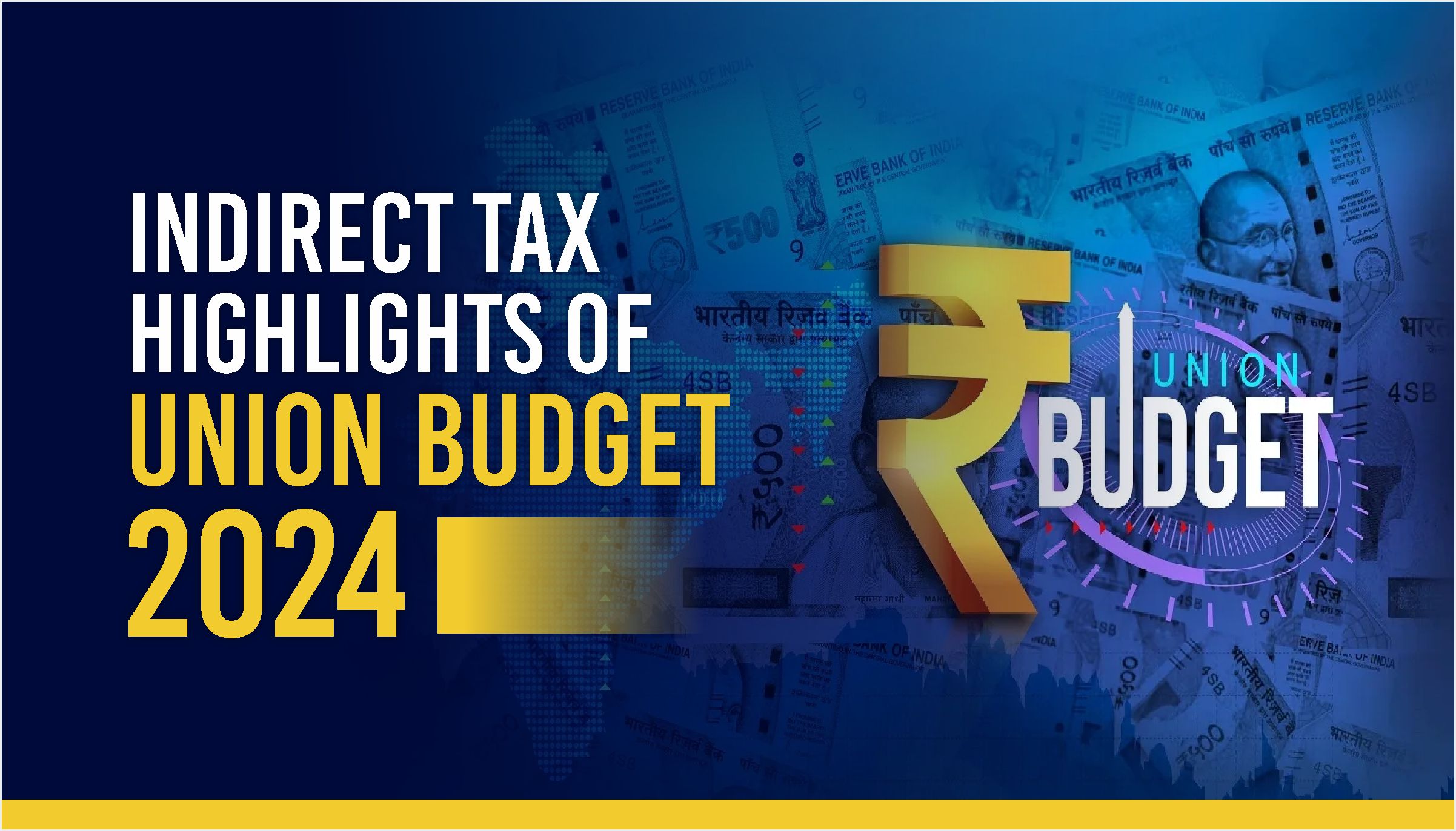Indirect Tax Highlights of Union Budget 2024: Key Changes in Customs

The Union Budget 2024 presented by Finance Minister Smt Nirmala Sitharaman, outlines significant changes to the indirect tax structure, particularly focusing on customs duties. The modifications aim to simplify the tax system, stimulate various sectors, and promote economic growth. Here’s a detailed look at the proposed changes in indirect taxes:
Goods and Services Tax (GST)
The government remains committed to the success of the GST regime and plans to further simplify and rationalize the GST structure. The goal is to expand GST coverage to remaining sectors, ensuring a more streamlined and efficient tax system that can adapt to the evolving economic landscape.
Sector-Specific Customs Duty Changes
Medicines and Medical Equipment
- Exemptions on Cancer Drugs
Three cancer drugs, namely Trastuzumab Deruxtecan, Osimertinib, and Durvalumab, are now fully exempt from custom duties. This move is expected to make these life-saving medications more affordable for patients.
- Changes in Medical Equipment Duties
Basic Customs Duty (BCD) on x-ray tubes and flat panel detectors used in medical x-ray machines under the Phased Manufacturing Programme has been adjusted to support the domestic manufacturing of medical equipment.
Reduced Duties on Mobile Components
BCD on mobile phones, mobile Printed Circuit Board Assemblies (PCBA), and mobile chargers has been reduced to 15%. This reduction aims to lower manufacturing costs and promote the domestic production of mobile phones and related accessories. It will also help reduce the cost of Mobile Phones, thereby helping to push Digital India.
Lower Duties on Gold, Silver, and Platinum
Customs duties on gold and silver have been reduced to 6%, and the duty on platinum has been set at 6.4%. This reduction is likely to benefit the jewelry industry and make these precious metals more affordable.
Duty Exemptions on Key Metals
BCD has been removed on ferro nickel, blister copper, ferrous scrap, and nickel cathode. Additionally, a concessional BCD of 2.5% has been introduced for copper scrap. These changes aim to support the metal industry by reducing raw material costs.
Exemptions on Copper for Electronics
BCD has been removed, subject to conditions, on oxygen-free copper used in the manufacture of resistors. This exemption is intended to boost the electronics manufacturing sector by lowering input costs.
Increased Duties on Ammonium Nitrate
BCD on ammonium nitrate has been increased from 7.5% to 10%, which could affect industries relying on this chemical for various applications.
Higher Duties on PVC Flex Banners
BCD on PVC flex banners has been increased from 10% to 25%. This hike is likely aimed at reducing imports and encouraging domestic production.
Increased Duties on Telecom PCBA
BCD has been increased from 10% to 15% on the PCBA of specified telecom equipment, promoting local manufacturing in the telecom sector.
Extended Time Periods for Repairs
To promote domestic aviation and the maintenance, repair, and overhaul (MRO) of boats and ships, the time period for exporting goods imported for repairs has been extended from six months to one year. Additionally, the time limit for re-importing goods for repairs under warranty has been extended from three to five years.
Exemptions on Critical Minerals
51 critical minerals have been fully exempt from customs duties, and the BCD for four minerals is reduced to 2.5%. This move is aimed at securing raw materials essential for various high-tech and strategic industries.
Exemptions on Solar Manufacturing Equipment
Capital goods used in the manufacture of solar cells and panels have been exempted from customs duty, supporting the renewable energy sector and promoting domestic solar manufacturing.
Reduced Duties on Marine Inputs
BCD on certain broodstock, polychaete worms, shrimp, and fish feed has been reduced to 5%. Various inputs for the manufacture of shrimp and fish feed have also been exempted from customs duty, benefiting the aquaculture industry.
Reduced Duties on Textile Inputs
BCD on real down filling material from duck or goose has been reduced. Additionally, BCD on methylene diphenyl diisocyanate (MDI) for the manufacture of spandex yarn has been reduced from 7.5% to 5%, promoting the textile industry.
The Union Budget 2024’s indirect tax proposals reflect a comprehensive approach to supporting key sectors of the economy. By adjusting customs duties and introducing targeted exemptions, the government aims to foster growth, promote domestic manufacturing, and ensure the availability of essential goods at competitive prices. These measures are expected to provide a significant boost to various industries, driving the nation’s progress towards Viksit Bharat under Prime Minister Narendra Modi’s leadership.
